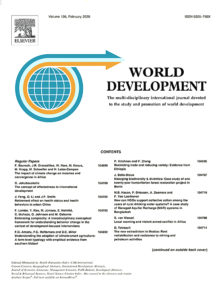Challenges in using RCTs for evaluation of large-scale public programs with complex designs: Lessons from Peru
| Year | : | 2020 |
|---|---|---|
| Author/s | : | Javier Escobal, Carmen Ponce |
| Area/s | : | Rural development and agriculture, Methodologies for research and evaluation of policy and programmes |
Escobal, J. & C. Ponce (2020). Challenges in using RCTs for evaluation of large-scale public programs with complex designs: Lessons from Peru, World Development, 127.
The use of randomized control trials (RCTs) to evaluate public policies and interventions in developing countries faces several challenges. These include limited budgets to finance sample designs and sample sizes required to evaluate multifaceted interventions, potential small-sample bias arising from such limited samples, and difficulties in random assignment when participants self-exclude from parts of the intervention. In addition, institutional challenges arise when seeking to evaluate large-scale interventions implemented within a state bureaucracy as compared to NGO small pilots’ evaluations. This short article seeks to discuss the practical challenges facing RCTs when used as a public policy and program evaluation mechanism. This discussion is based on the impact evaluation of a public project that offered several productive interventions to rural households who were already receiving conditional cash transfers.






